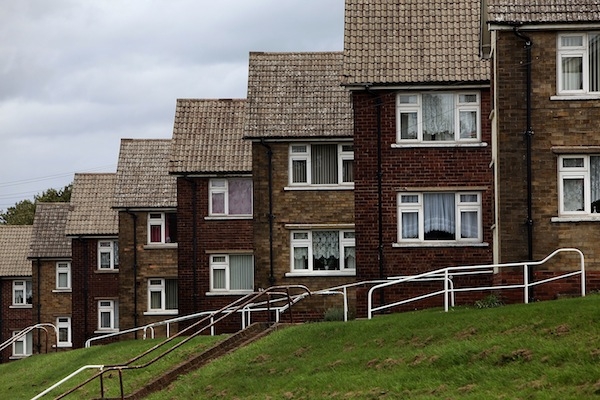This piece first appeared in last week’s Spectator.
Britain does not have a housing shortage. We have a problem with the cost not the availability of homes. This can’t be solved by building more houses, because it is not caused by an insufficiency of houses.
I’m no economist. My understanding of the dismal science is rudimentary. I may be shot down in flames as an ignoramus. But here goes. Residential property has become a kind of currency, prized more for value than utility; and its role as a financial asset is messing with its ability to perform the function of actually housing people. Straining to increase the supply of housing will no more restrain price than straining to increase gold production would make much difference to the price of gold. Supply being constrained, and appetite sharpened not by need but by acquisitiveness, even the most strenuous attempts to boost production will not bring prices within the reach of an increasingly large part of the population.
To pursue my argument, I ask you to take an imaginative leap into a Magritte-like dreamworld. Just pretend.
Imagine everyone needed to have an umbrella. Don’t ask why: they just did. To lack this item was universally acknowledged as serious deprivation. To possess it was a fundamental human need. And imagine it was not possible to import umbrellas: they had to be made here; and they were difficult to make, and took ages. Even if we doubled production, the national umbrella stock would only be increasing by about 1.5 per cent per annum.
Imagine that there was no physical shortage of umbrellas — yet curiously this did not dull the demand. Why not? Because we’d grown confident that an umbrella’s value could only rise because the market was assured and supply was restricted: a one-way bet, so in a million individual decisions, we collectively took it. We aspired to umbrellas as rural Africans aspire to cattle: not to eat or milk, but as a sign of wealth, and tradeable.
Thus the purchase of an umbrella became a kind of investment, prized for its value as much as its utility. People with money might buy more; or trade up their umbrellas for classier and more expensive models. Umbrellas became a way of saving — for old age; for future resale in hopes of a capital gain; or for a rainy day in both senses of the word. Those with cash to spare (or credit available) vied to outbid others. Prices rose.
The rising umbrella price began to leave more people out of reach of ownership. But you could always hire umbrellas, so the demand to rent increased. Owners of second or even third umbrellas could make good money from renting out; so people with sufficient funds started purchasing extra umbrellas with the sole purpose of offering them for rent. This new source of demand pushed the price of umbrellas even higher — and rental prices increased apace as umbrella owners took a return on their investment.
A curious situation arose. Although there were in fact nearly enough umbrellas to go round, owners were bidding up the prices of each other’s umbrellas in order to increase their holdings in this commodity; rental costs were increasing in line with umbrella prices; and sections of society, especially younger people, saw a receding prospect of ever owning one. This caused popular discontent. A small increase in the number of the ‘umbrella–less’ and a larger increase in the number of those struggling with umbrella costs gave rise to a sense almost of emergency. There was (people told their politicians) an ‘umbrella crisis’.







Comments